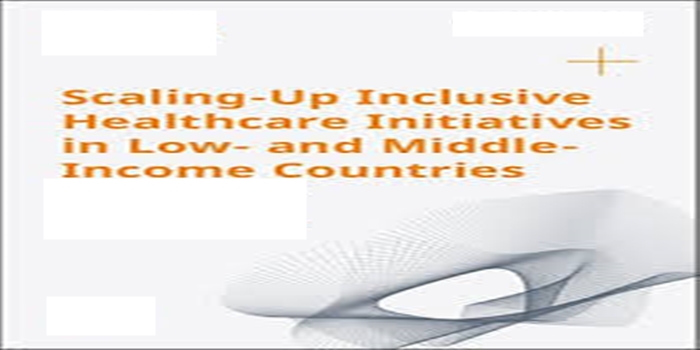In this article, we explained the meaning of inclusive scaling, the features, the examples, we also talked about the benefits.
Definition
Inclusive scaling means expanding something (like a business, project, or innovation) in a way that aids and includes all relevant stakeholders, especially relegated groups. It’s about ensuring that the benefits and opportunities of the scaled-up initiative are accessible to everyone, not just a select few.
The Features of Inclusive Scaling:
Anticipating and Addressing Exclusion:
Identifying potential barriers to inclusion and proactively addressing them during the planning and implementation phases.
Systemic Approach:
Recognizing that scaling is not a linear process but rather a continuous cycle of learning, adapting, and improvement.
Focus on Marginalized Groups:
Prioritizing the needs and interests of marginalized groups and ensuring that they are actively involved in the scaling process.
Dynamic Assessment:
Continuously monitoring and evaluating the extent to which scaling is inclusive and making adjustments as needed.
Learner-Centred Approach:
Ensuring that the scaling process is designed to meet the needs of learners and that their perspectives are valued.
Inclusive Environment:
Creating an environment that is physically and socially inclusive, where individual differences are respected and diversity is valued.
Support and Feedback:
Providing timely and sensitive support, as well as constructive feedback, to learners.
Embedding Well-being:
Integrating approaches to teaching well-being, such as social skills, emotions, and mental well-being.
The Examples of Inclusive Scaling:
Renewable energy:
Inclusive businesses in this sector, like the examples mentioned, are serving millions of consumers, highlighting the potential for large-scale, inclusive solutions.
Online food delivery:
Online grocery commerce and food delivery services are transforming how people access food, demonstrating how digital platforms can scale inclusively.
Distributed ledger technology (like blockchain):
This technology can enhance transparency and trust in supply chains, enabling more inclusive access and benefits.
Inclusive education:
Ensuring all students, including those with disabilities, have access to quality education and a supportive learning environment is a crucial aspect of inclusive scaling.
Inclusive design:
Designing products and services with accessibility and inclusivity in mind allows everyone to benefit from the innovation, as seen in examples like Apple’s commitment to accessibility and the Google Pixel 6 phone.
Inclusive infrastructure:
Focusing on scaling local investments in areas like infrastructure to ensure everyone, including marginalized communities, can benefit from development efforts.
The Benefits of Inclusive Scaling:
For Organizations:
Innovation and Creativity:
Diverse teams with varied perspectives foster a culture of innovation and creativity, leading to more innovative solutions and improved problem-solving.
Employee Engagement and Retention:
Inclusivity makes employees feel valued and motivated, leading to higher employee morale, engagement, and a greater desire to stay with the organization, reducing turnover and recruitment costs.
Broader Market Reach:
Diverse teams can connect with a wider audience, understand diverse customer needs, and maintain strong market relevance.
Enhanced Decision-Making:
Diverse perspectives lead to more informed, balanced, and less biased decisions, improving outcomes across teams and organizational strategies.
Positive Reputation:
Organizations that prioritize inclusivity and DEI have a more positive reputation, attracting and retaining talent, improving investor relations, and enhancing their overall brand image.
For Individuals:
Increased Sense of Belonging:
Inclusive environments create a sense of belonging and a voice for all employees, allowing them to feel that their skills and abilities are valued, leading to a healthier work environment.
Opportunity for Growth:
Inclusive scaling ensures that all employees have equitable opportunities for growth and development, regardless of their background or identity.
Improved Communication and Collaboration:
Inclusive environments foster better communication and collaboration across different teams and levels within an organization.
For Society:
Sustainable Growth and Resilience:
Inclusive scaling promotes sustainable growth and resilience by addressing global challenges and ensuring that all members of society benefit from economic and social progress.
Reduced Inequality and Discrimination:
Inclusive scaling can help reduce inequality and discrimination by ensuring that marginalized groups are included in the benefits of growth and development.
Improved Social Cohesion:
Inclusive practices can help build stronger social cohesion by fostering understanding, empathy, and respect between different groups within society.
In the context of educational settings:
Higher Academic Performance:
Inclusive practices can lead to higher rates of academic performance for students with disabilities.
Improved Social and Emotional Development:
Inclusive classrooms can foster more satisfying and diverse friendships, higher student engagement, and improved communication skills.
Positive Peer Role Models:
Inclusive environments provide peer role models for academics, social, and behavioral skills.
Conclusion
Inclusive scaling means increasing initiatives while ensuring that marginalized groups and diverse perceptions are included and benefit from the growth. The benefits of inclusive scaling include increased innovation, improved employee engagement, higher talent retention, broader market reach, enhanced decision-making, and a positive organizational reputation. Inclusive scaling also promotes sustainable growth and flexibility, making it a strategic approach to address global challenges.
READ: The Growth Unscaling


